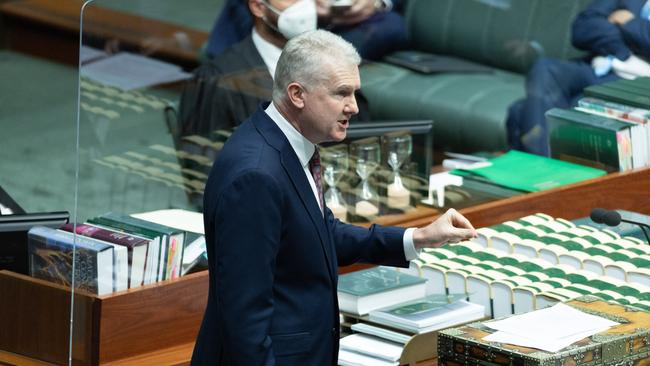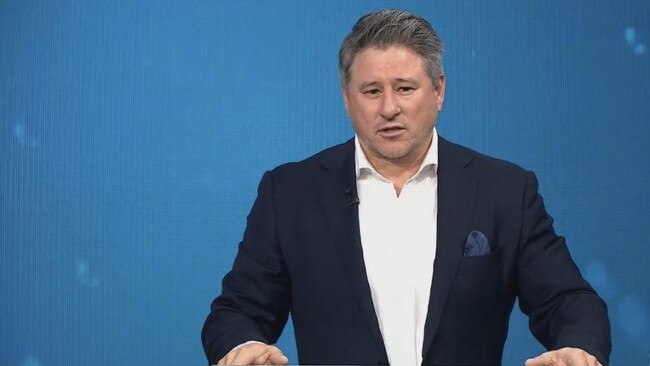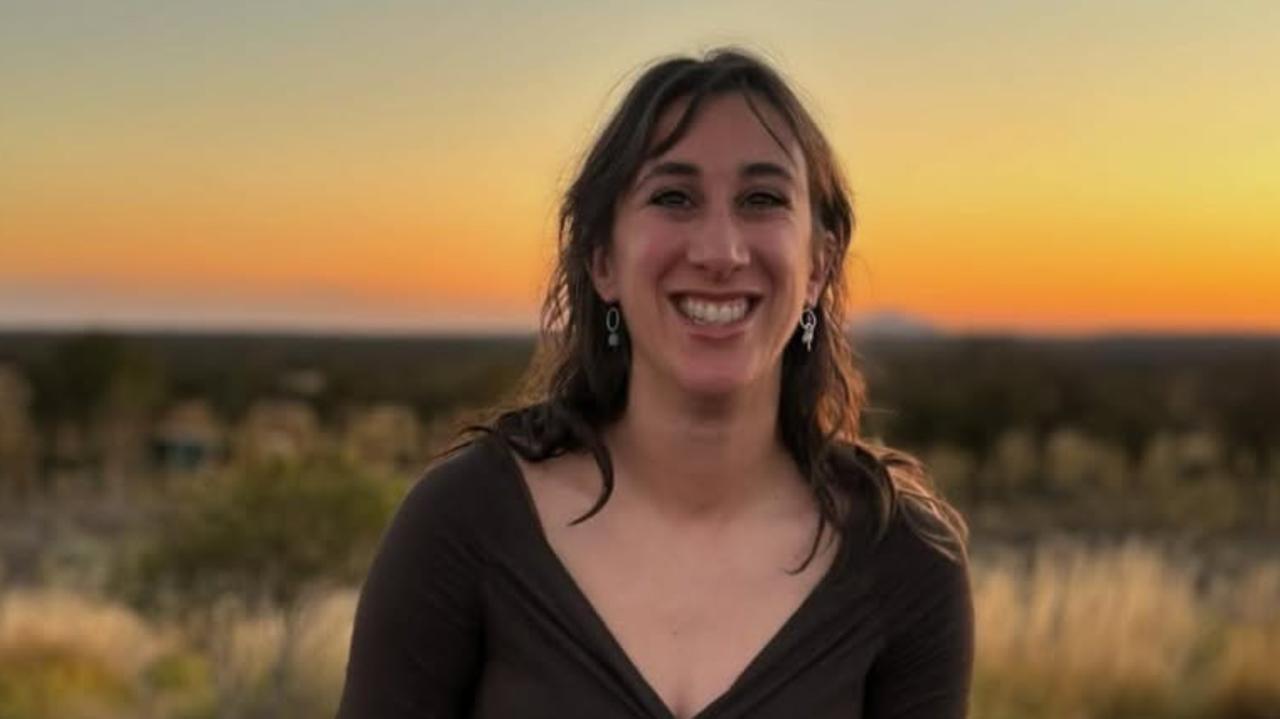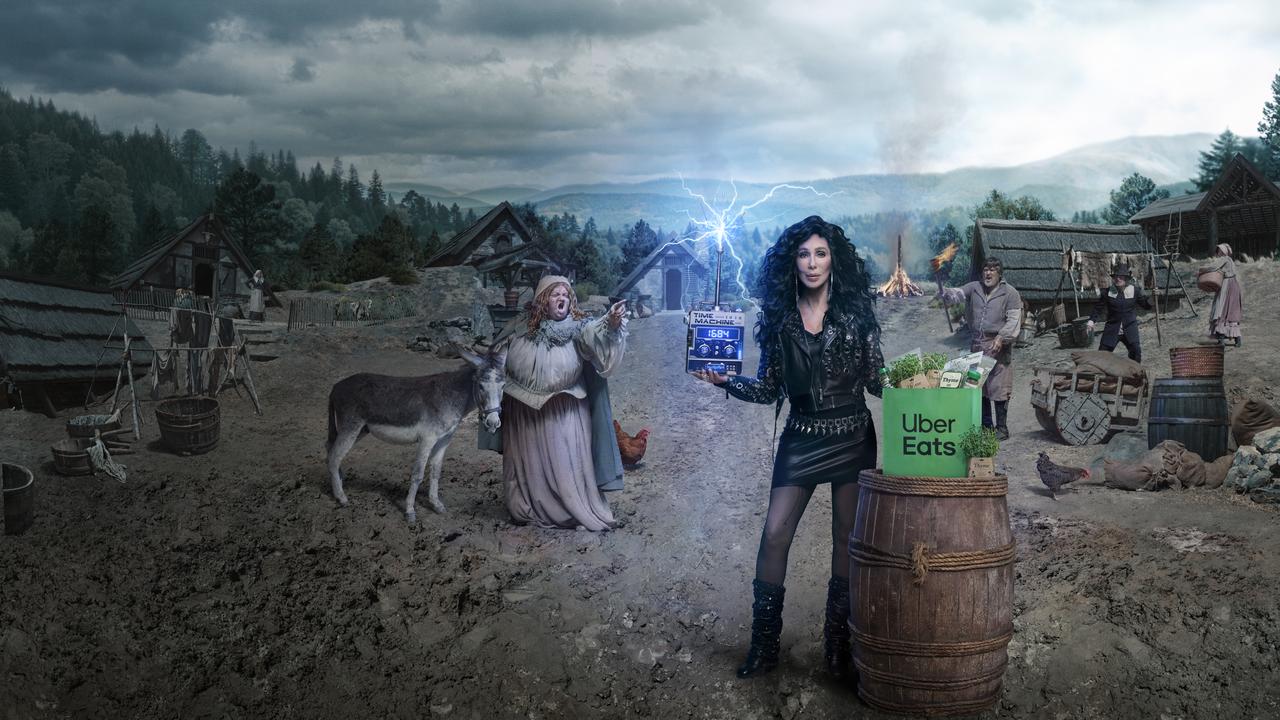Albanese government faces pushback on streaming content obligations
The Albanese government is facing stiff pushback to its plans to impose Australian content obligations on streaming platforms.

The Albanese government is facing stiff pushback to its plans to impose Australian content obligations on streaming platforms, with local media groups becoming increasingly concerned that the proposed laws will result in the perverse outcome of punishing the companies that are the biggest investors in the domestic production industry.
Soaring costs, coupled with a strong belief that further mandates on an already heavily-regulated local sector are unnecessary, have highlighted the impasse between Labor and local media players who fear the proposed laws will make it financially unviable to deliver Australian content of adequate quality and quantity.
Last month, Arts Minister Tony Burke said the government was pushing ahead with its plans to introduce laws that would require all streaming platforms – both international, including Amazon, Disney Plus, Apple and Netflix, and Australian-based or ‘attached’ platforms such as Stan, Foxtel and Paramount+ – to spend a yet-to-be-determined percentage of their local revenue on the production of local content.
The laws would come into force by July 1 next year, he said.
Mr Burke met with various industry stakeholders last week, and further talks are expected to be held this week, but The Australian understands that some local players have already conveyed their “serious concerns” to the government about the future of Australian drama if the laws are pushed through.
Central to the concerns of local players is the disadvantage of facing “double-regulation”. Stan and Paramount+ are both attached to free-to-air TV stations (Nine and 10 respectively), meaning they are already subject to local content requirements that apply to their free-to-air partners.
The Foxtel Group (65 per cent owned by News Corp, publisher of The Australian) also has existing local content obligations under the terms of its subscription TV licence, which are the most onerous of any media network or streaming platform.
It’s expected that Labor will settle on a requirement that local and international streamers will have to spend between 10 and 20 per cent of its local revenue on local production – a figure well in excess of the current domestic mandates.

But it’s understood that some international streaming platforms are pushing for a “percentage of expenditure” model rather than a “percentage of revenue” model, which could disadvantage local streaming platforms to an even greater extent.
On Thursday, Nine chief executive officer Mike Sneesby issued a blunt warning to the federal government that his network’s streaming platform Stan could be “squeezed out” of the Australian market if the laws proceed, notwithstanding the ongoing uncertainty surrounding the extent of the proposed levy.
“There is a very significant risk of unintended consequences here – of quotas or investment hurdles driving a long-term advantage toward international players, who would put cost pressures on the industry here,” he told The Australian.
Mr Sneesby said there was “only a certain number of great creative ideas in Australia”, and as such the local industry could be hollowed out by international streamers whose production lines operate on a far greater scale than their Australian counterparts.
“So the consequence of inflation in pricing and a reduced amount of great creative ideas for local media companies is that over the long term, you’re likely to see international streamers look back on these kinds of policies and say, ‘that was a good outcome for our business because we took greater share’,” he said.
Another senior industry source, who asked not to be named, said Labor had been made well aware of its policy’s shortcomings in recent weeks.
“The new regulations should be aimed at trying to capture those that aren’t currently investing in the industry. It shouldn’t be about imposing further obligations on existing Australian businesses.”
A spokesperson for the Foxtel Group said: “With a long history of bringing critically acclaimed Australian stories to the screen, we remain a committed local champion.
“This contribution … creates valuable Australian jobs in the creative industry.”
Representatives from Netflix – which continues to dominate the Australian streaming market in terms of subscriber numbers – met with Mr Burke last week, with the parties discussing a safety net for the production sector, among other issues pertaining to the new laws.
“Netflix’s position is clear: we don’t oppose regulation, but do want it to be sustainable, equitable and evidence-based,” a Netflix spokesperson said.
“We look forward to … regulation that creates good outcomes for Australian storytellers and audiences, and will continue to see our many homegrown films and shows enjoyed here and around the world.”
Bridget Fair, the chief executive of Free TV Australia, the industry body that represents Australia’s commercial TV licensees, said on Sunday: “SVOD (streaming) quotas are a solution looking for a problem and carry a real risk of hurting local media services by exacerbating the inflationary spiral we are already experiencing through natural competition.
“Quotas are a tool for market failure. It’s hard to argue they are necessary when Australian content spend is at an highest across the board and Screen Australia figures show streamers tripled their spend on Australian drama year on year.”
A spokesman for Mr Burke said the consultation process with industry stakeholders was continuing.




